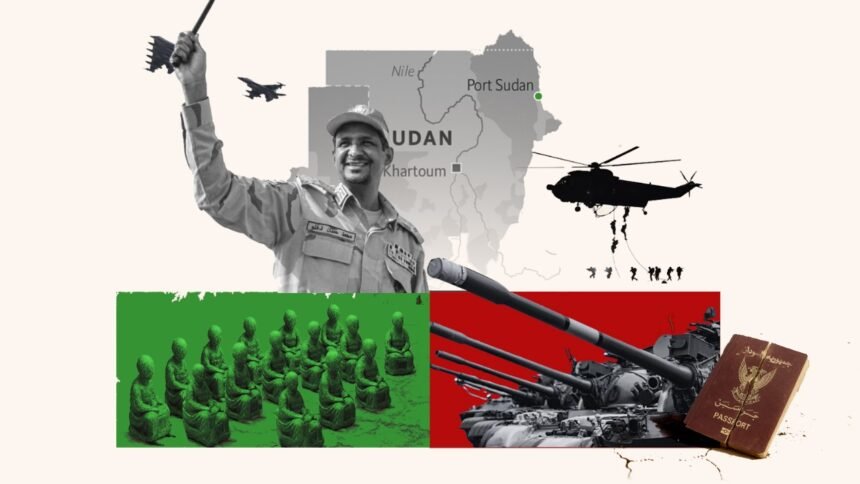Sudan, a nation already teetering on the edge of collapse, just stumbled into even deeper chaos. On July 26, the Rapid Support Forces (RSF)—a powerful paramilitary faction led by Gen. Mohamed Hamdan Dagalo, better known as Hemedti—formally declared a “sovereign council” to govern RSF-held areas in Darfur and other western regions. In simpler terms: Sudan now has two governments, neither of which seems particularly inclined to share the sandbox.
This self-anointed alternative administration includes 15 members, with Hemedti at the helm. The RSF says the council will provide “law, order, and services” in areas it controls. But critics—including those loyal to the internationally recognized government based in Port Sudan—see it as an open bid for partition. The move all but cements the de facto fragmentation of Sudan that has been underway since civil war broke out in April 2023 between the Sudanese Armed Forces (SAF) and the RSF.
If this sounds like a political nightmare, that’s because it is. For civilians trapped in the RSF’s new dominion—particularly in Darfur—it marks yet another chapter of uncertainty, displacement, and potential ethnic violence.
Darfur is not new to such headlines. The region has long been a flashpoint of conflict and humanitarian disaster, especially since the early 2000s when Janjaweed militias—predecessors to today’s RSF—were accused of ethnic cleansing and war crimes. Now, the very group that once terrorized the region has declared itself the legitimate ruler there.
The timing of this announcement is no accident. In recent weeks, the SAF, led by Gen. Abdel Fattah al-Burhan, has tried to rally international support, portraying his side as the rightful guardian of Sudanese sovereignty. But while the SAF maintains control over strategic coastal areas and parts of the northeast, the RSF has entrenched itself in major western cities and even portions of Khartoum. In the words of one regional analyst: “Sudan is no longer a single country—it’s a battleground between two shadow states.”
What makes this situation uniquely dire is not just the power struggle, but its ramifications. Sudan is already enduring one of the world’s worst humanitarian crises. Over 10 million people have been displaced. Basic services—electricity, healthcare, education—have all but evaporated. Aid convoys are routinely attacked. And now, with the RSF formalizing its grip on Darfur, the risk of famine, ethnic targeting, and open regional war has skyrocketed.
The RSF claims that this move is necessary to prevent a governance vacuum. In a statement, Hemedti’s forces said the sovereign council would “ensure continuity of government services and uphold justice and rule of law” in the “liberated areas.” That might sound noble on paper, but human rights monitors and local NGOs tell a different story. In RSF-held towns like El Geneina and Nyala, residents report extortion at checkpoints, targeted attacks on ethnic communities, and a near-total absence of functioning institutions.
So why now? Analysts point to three converging factors. First, the international community is distracted—by Gaza, Ukraine, and domestic crises elsewhere. Second, the SAF has been losing territory, or at best, failing to retake key cities. And third, Hemedti is testing how far he can go without triggering a unified global backlash. So far, the silence has been deafening.
The African Union, IGAD, and even the United Nations have issued cautious statements, calling for “de-escalation” and “restoration of democratic rule.” But such calls ring hollow without enforcement mechanisms or leverage. For all the diplomatic concern, little has been done to halt the slow-motion state collapse underway in Sudan.
Meanwhile, ordinary Sudanese citizens are caught in the crossfire. In Darfur, where intercommunal violence is rising, civilians fear that the RSF’s formal power grab may unleash even more brutal repression. In SAF-controlled areas, conscription is increasing, fueling resentment among war-weary populations. Sudan’s vast diaspora watches with growing despair, as hopes for a democratic transition—once alive in the wake of the 2019 revolution—are replaced by a bleak reality of warlordism.
For now, Sudan exists in pieces. Two leaders. Two militaries. Two competing visions. One humanitarian catastrophe. The international community has a narrow window to act—before the splintering of Sudan becomes irreversible.
And in case you’re wondering what the RSF’s new council means for peace negotiations: it throws a very large wrench into an already rusted machine. After all, it’s hard to talk unity when the country’s second most powerful actor has essentially said, “Thanks, but we’ll govern ourselves from now on.”
If there were ever a moment for bold, principled diplomacy, it’s now. Because without it, Sudan’s next chapter could be written in blood.










